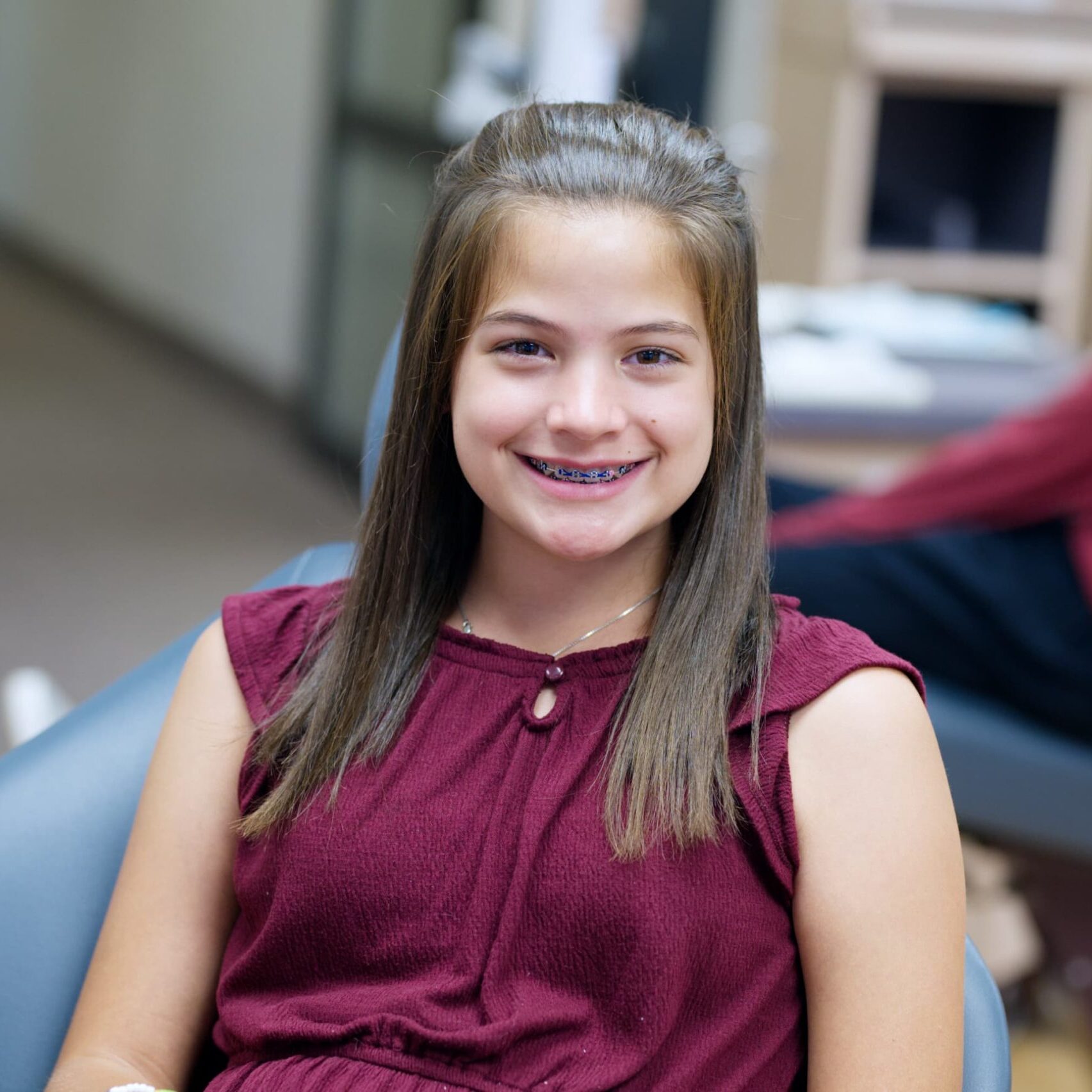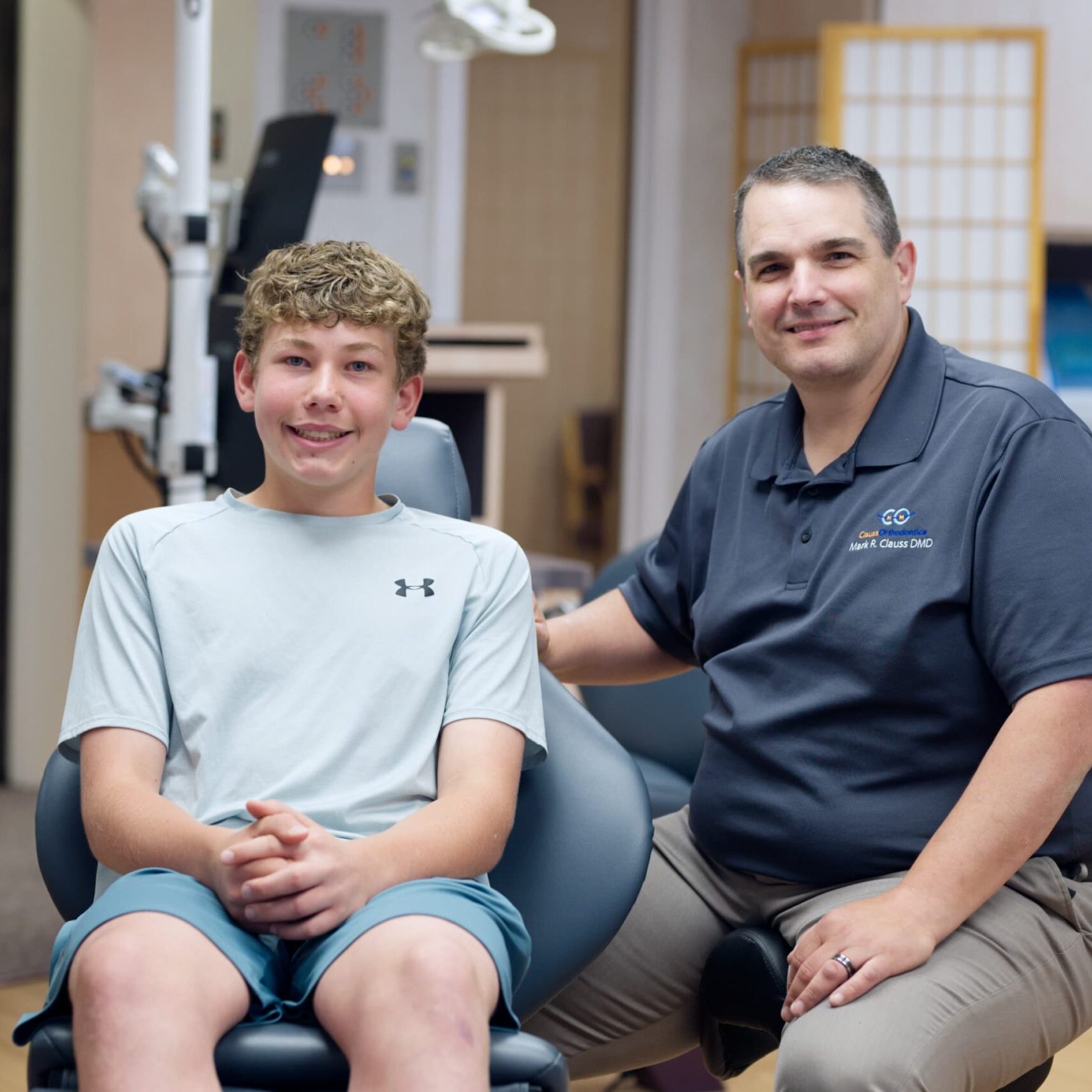Braces for Teens
Teens today tend to have a pretty active online presence. Teens are more active on social media and focus more on appearances.
Many teens are very insecure and want help to create that perfect smile. Thankfully, you have many options your teen can choose from to improve their oral health while also improving their appearance.
The Most Common Time for Treatment
Frequently started between the ages of 12 and 16, since most permanent teeth will be in place, the teen years are the most common time for orthodontic treatment.
Experienced orthodontists like Dr. Clauss will also be able to easily detect issues with spacing, crowding, bite, and alignment in this age range, and the bone and jaw structure are formed enough to allow orthodontic treatment to begin.
Some teens may have even started Phase I treatment at an earlier age, and are now following it up with full braces or other orthodontic treatment.
Signs the Bite's Not Right
Beyond outward appearances, untreated dental problems can have a lasting impact on a teen’s oral and overall health.
If you notice any of the following issues, we recommend a free consultation with Dr. Clauss, since they could be signs your teen may benefit from orthodontic treatment.
- Early, late, or irregular loss of their baby teeth
- Difficulty with chewing or biting
- Crowding or extra spacing between teeth
- Jaws that shift or make sounds
- Frequent biting of the cheek or the inside of the mouth
- Teeth that meet abnormally or not at all
- Jaws and teeth that are out of proportion to the rest of the face
- Protrusion of teeth
Get Treatment Early
The early diagnosis and successful treatment of certain bite problems can have both short-term and long-term benefits.
Problems classified as bad bites can often be minimized with the proper orthodontic treatment, including:
- Crooked or crowded teeth
- Missing or extra teeth
- An overbite or underbite
- Incorrect jaw position
- A disorder of the jaw joint
Benefits of Early Treatment
Teeth that have responded well to orthodontic treatment, and are straight and well-aligned carry with them a number of benefits.
These benefits include:
- Being less prone to wear and tear, chipping, and tooth trauma
- Being easier to keep clean, helping to prevent tooth decay and cavities
- Reducing the chances of developing gum disease, which can result in bone loss, decay, and tooth loss
- Improving proper chewing and digestion of food

How Long Treatment Takes
This is a question with no concrete answer, unfortunately. Every case is different, but on average, the active stage of orthodontic treatment will last anywhere from 6-36 months.
After this phase of treatment is complete, your teen will need to wear a retainer for life in order to create the kind of smile that will last a lifetime.
Can teens still play sports when undergoing orthodontic treatment?
Absolutely! If your teen athlete is wearing more traditional braces, it will be essential to protect their smile in order to keep on track with treatment.
We strongly recommend that they use an orthodontic mouthguard to protect their braces, and their mouth, from any potential injury. With the use of a proper orthodontic mouthguard, any contact sport can be played with braces.
Because Invisalign aligners are removable, teens using this system can simply take their aligner out before practice or a game, and put it back in afterward.

What about musicians?
Traditional metal braces can potentially affect the way your teen plays some instruments. Invisalign is an excellent alternative treatment, as removing the aligner before playing allows complete freedom for your teen’s music-making abilities.
Make an Investment in Your Teen’s Smile
Orthodontic treatment is truly an investment in your child’s future. By scheduling a free consultation, Dr. Clauss will be happy to discuss the benefits of treatment with both of you, as well as any of the potential risks associated with delaying or foregoing treatment.
Although adults can, and do, successfully complete orthodontic treatment, the jaws and teeth of teenagers often respond more quickly to orthodontic treatment, shortening their total treatment time.